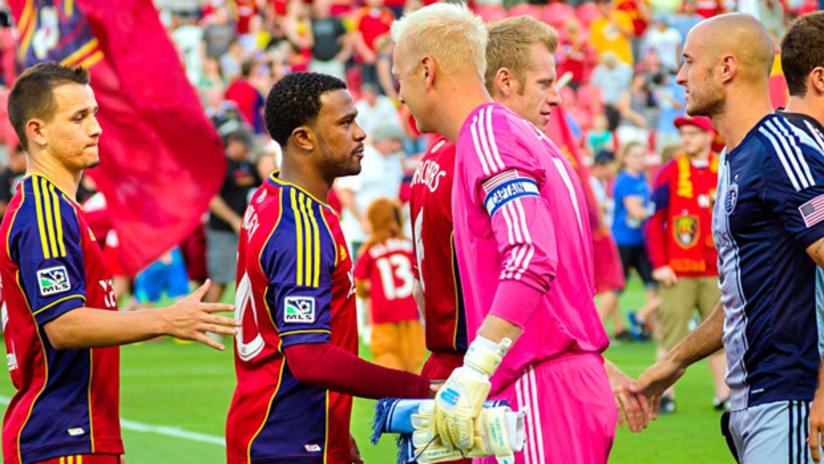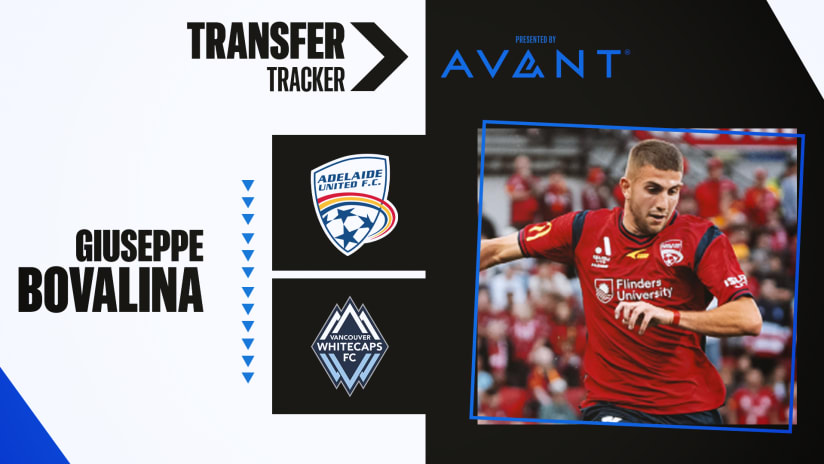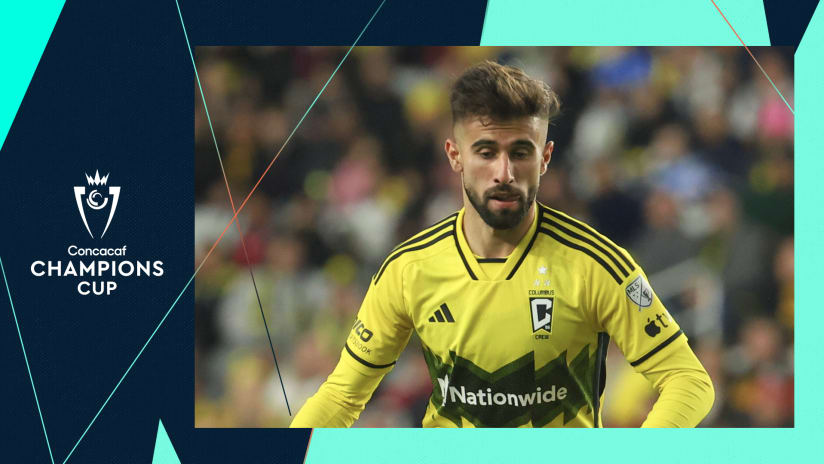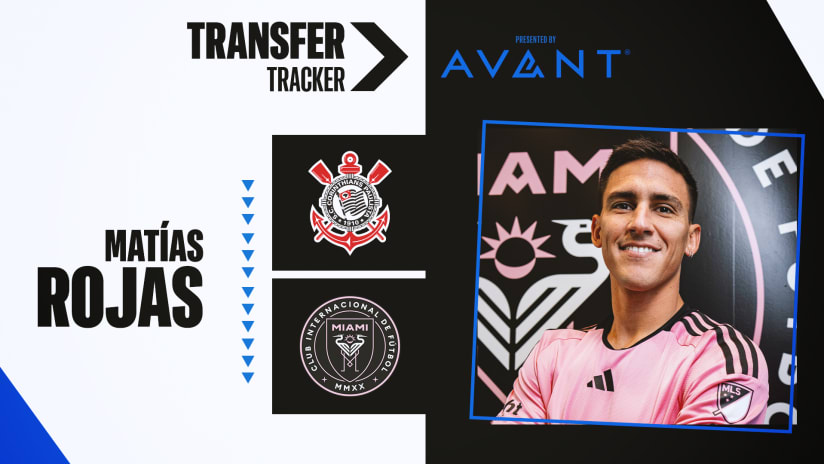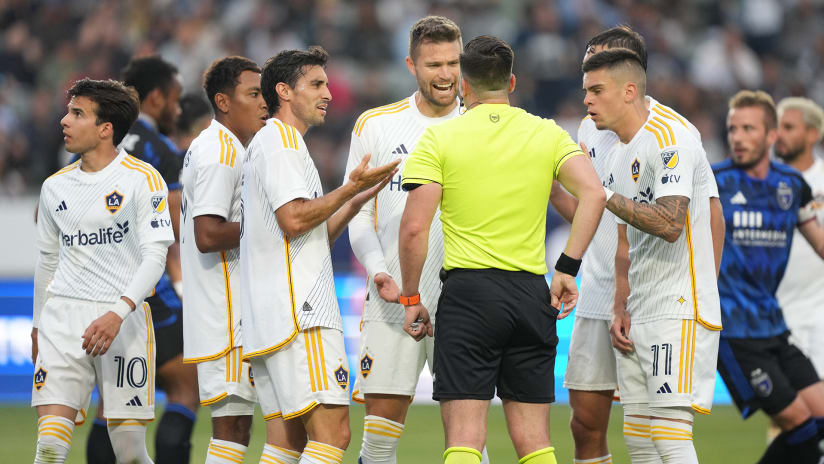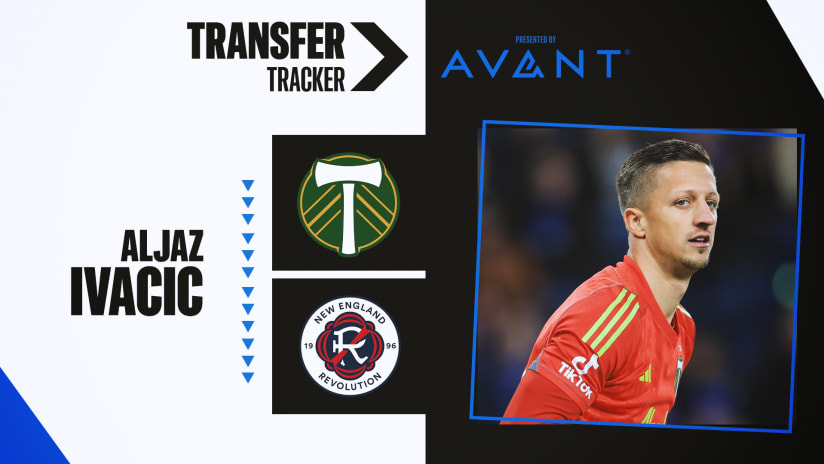Sporting Kansas City vs. Real Salt Lake at MLS Cup 2013.
A matchup of two of the most ambitious teams in MLS. A clash of two of the most entertaining and established soccer styles in the league. A chess match between two of the best American coaches in circulation.
And the first "small market" clash in MLS Cup history.
December 7 will be the first time that two teams outside the Top 10 media markets in the country (per designated market area) will be contesting the league's championship match (Kansas City is ranked No. 31 and Salt Lake City is No. 33).
While fans in other sports leagues sometimes roll their eyes with indifference at small-market showdowns, for MLS supporters – even for those from the other 17 teams – this "small market" final is a badge of honor. Something to be proud of.
It stands for what the American top-flight soccer league is all about.
When it comes to population, Salt Lake City (pop: 189,314) is roughly the same size as A Coruña, Spain (pop: 246,146), the home of the last team outside of Spain's three major cities (Madrid, Barcelona, Valencia) to win a Spanish La Liga title back in 1999-2000.
In fact, Deportivo La Coruña are the only team outside of Spain's big three metropolis to win a La Liga title in the last 29 years. Compare that to what's happening stateside in MLS, where RSL are one game away from winning their second league title in five seasons.
The salary budget that was implemented from the launch of MLS back in 1996 was widely believed to be a response to the demise of MLS's predecessor: the free-spending NASL of the 1970s and '80s, which finally went belly-up in 1984.
But more than just avoiding a premature financial implosion, what the MLS salary system introduced was parity: Virtually every MLS team can say they have a shot at an MLS Cup title every year.
That's how the new generation of MLS fans will see it. They've never heard of the old NASL collapse (the NASL was revived as a second-division league in 2009). So for them, the salary set-up in MLS is a refreshing alternative to what happens in other high-profile soccer leagues, like Spain's La Liga, where money buys championships.
And Europe is slowly catching on to what's happening in MLS. The first step in that direction has been the Financial Fair Play movement by UEFA that will force clubs to spend within their means beginning in 2015. The hope is that more responsible spending will lead to a more level playing field.
Well, that's already the case in MLS. No runaway champions. No decades of irrelevance for anyone (Deportivo La Coruña are today in the Spanish second division, saddled with $229 million in debts, according to EFE). Bad year in MLS? You dust yourself off and get back in the scrum next year.
This parity is one of the pillars on which MLS's identity is built. It's one of the points of difference that allows the US league to stand out in the crowded world soccer marketplace.
And one of the byproducts of the parity – and typically overlooked – has proven to be the boost to the "small markets."
The MLS salary budget has allowed US cities like Kansas City, Portland and Salt Lake City to dream big. And as a result, the supporters in those cities are inspired. They sell out stadiums – often on a moment's notice. Even in record cold, if that's what's called for.
Teams like the Timbers, RSL and Sporting KC are today as relevant locally as other professional sports teams in those cities. And their legitimate ability to duke it out for the title against the big boys in New York, LA and Seattle is the major reason for it.
It's that same can-do spirit that is fueling the enthusiasm in Orlando, which was recently announced as the home for MLS's 21st expansion team beginning in 2015. Orlando may be a mid-major US media market (No. 19, just behind Denver and ahead of Portland), but OCSC have made it clear that they have designs on becoming a world player.
Clubs like Orlando City, RSL, the Timbers and Sporting KC have the license to dream in MLS.
As for that Spanish mid-market team, Deportivo La Coruña? Well, with nearly a quarter-billion dollars in debts, their ambitions are significantly more modest: survival.

